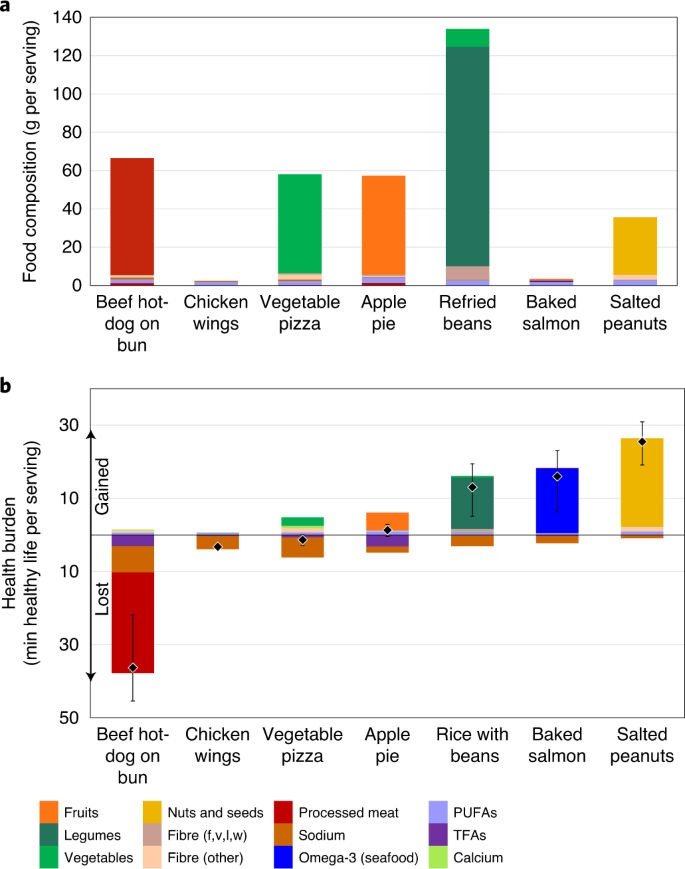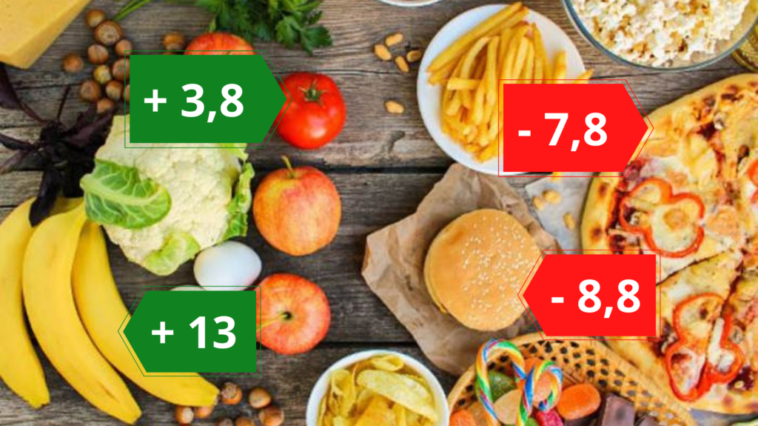Many of us already know that our diet impacts our health. However, this does not prevent us from craving foods that we know are not necessarily good for us. Whether out of greed or convenience (fast food, ultra-processed food, etc.), we often give in to temptation and indulge in small pleasures. Additionally, it can be difficult to understand what is really good for our body, but also how bad fats, excessive sodium and sugar affect our health. To determine this precisely, American scientists have made it their mission to calculate the impact of different foods on our life expectancy.
A study to estimate the impact of food on our life expectancy
In a study published on August 18, 2021 in Nature Food, researchers from the School of Public Health at the University of Michigan (United States) rated over 5,800 foods using a nutritional health index (HENI) that they developed themselves. This index took into account the salt level, fat content, fiber content, etc. There was a dual objective here: to precisely measure the effects of the foods studied on our health, but also to reflect on their environmental impact.

For a better visualization of the impact of our food choices on our health, they calculated in minutes the time lost or gained when consuming certain foods. They were thus able to establish that certain foods are beneficial for longevity and save us several minutes of life, whereas those that are harmful cause us to lose them.
6 foods that cause us to lose life expectancy

During their study, the researchers notably established the harmful effects of consuming processed meat, which is known to promote excess weight, cholesterol and cardiovascular diseases. They explain that on average, “ 0.45 minutes of life is lost per gram of processed meat a person eats. The 61 grams of processed meat in a sandwich results in the loss of 27 minutes of healthy life from that amount of processed meat alone “. This can be explained in particular by their richness in sodium and saturated fatty acids. This therefore partly explains the ranking below:
The hot dog costs us 36 minutes of life.
Rich in sugar, sodas cost us 12.4 minutes of life.
The double cheeseburger costs us 8.8 minutes of life.
Want a double cheeseburger? Count on 8.8 minutes less life between cheese, sauce and processed meat!
Pizza costs us 7.8 minutes of life.
For a direct trip to Italy with a good pizza, you lose 7.8 minutes of life expectancy according to the study.
Bacon costs us 6.4 minutes of life.
Count on 6.4 minutes less life… per gram of bacon!
Cheddar makes us lose 1.4 minutes of life.
This is something to remember before adding it to your burgers or your next recipes.
6 foods that increase our life expectancy

The peanut butter/jelly sandwich saves 33 minutes of life.
Remember that the study is carried out by American researchers. This therefore explains why some of the foods linked to life expectancy are, as here, from American cuisine. One might wonder what the results would have been if it had focused on recipes from French gastronomy!
A handful of nuts saves 25 minutes of life.
Although high in calories, nuts seem to be a good snack idea to calm small cravings!
Salmon cooked like banana saves us 13 minutes of life.
The tomato saves us 3.8 minutes of life.
For the avocado, count 2.8 minutes of life.
In conclusion, if we follow these calculations, it would seem that our foods have a direct impact on our health, and more particularly on our longevity. This study also demonstrates that a complete change of diet is not necessary. As Olivier Jolliet, professor of environmental health sciences at the University of Montreal and lead author of this study, explains: “ The urgency of changing diet to improve human health and the environment is clear. Our results demonstrate that small targeted substitutions offer a feasible and powerful strategy to achieve significant health and environmental benefits without requiring dramatic changes in diet. »


